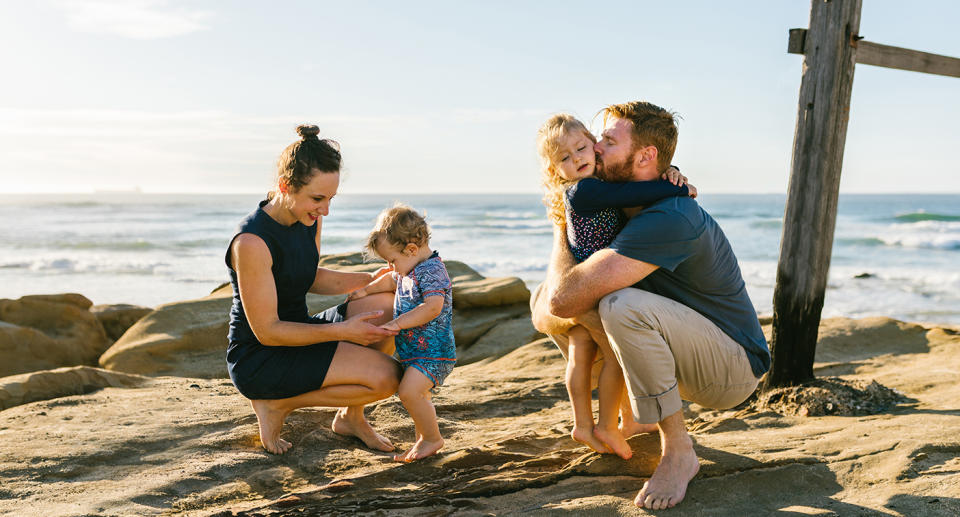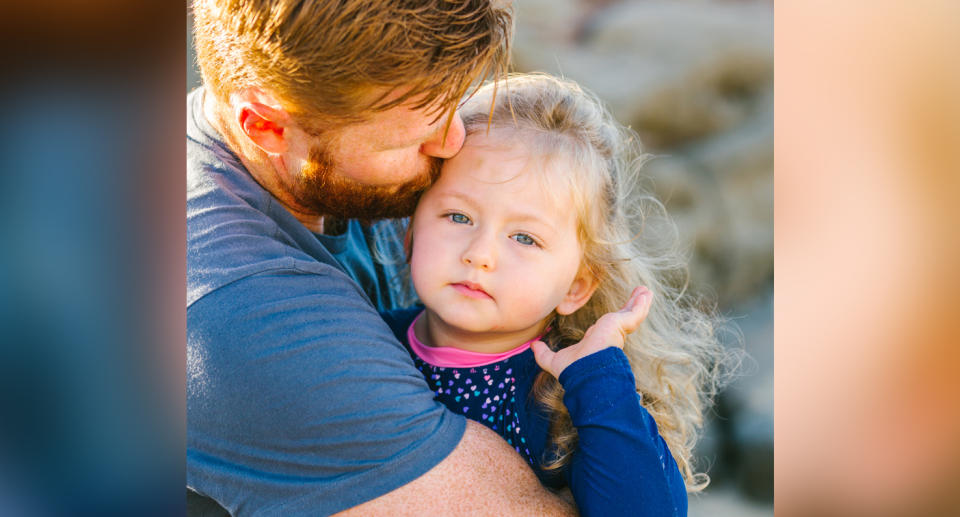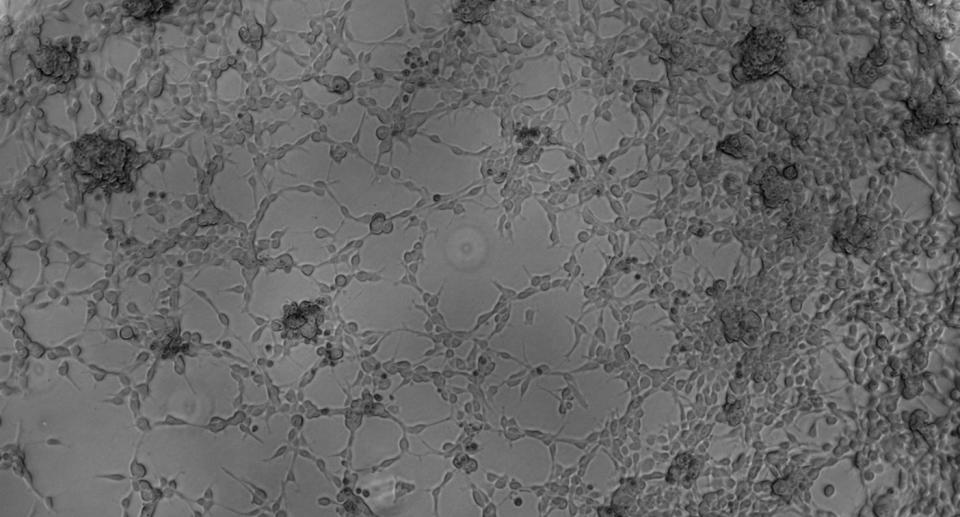Cancer researcher dad devastated by daughter's heartbreaking diagnosis
A cancer researcher was left “shattered” when his young daughter was diagnosed with “arguably the deadliest form of childhood cancer“.
Matt Dun and his wife Phoebe Dun, who is a GP, were given the heartbreaking news earlier this year, that their then two-year-old Josephine had diffuse intrinsic pontine glioma (DIPG) – which is described as a highly aggressive brain tumour that is difficult to treat.
“Average survival from diagnosis just 8 months and less than 1% of those diagnosed living 5 years,” a GoFundMe page started by Dr Matt Dun read.
Dr Dun, a cancer researcher at Newcastle’s Hunter Medical Research Institute, noticed his daughter looked very tired and wasn’t quite herself on the way to daycare one February morning, and later that day he received a call from staff who said she was uncharacteristically clumsy.
He immediately went to pick her up and noticed when they got home she was “crashing into the walls” down the hallway.

After a nap the now three-year-old seemed more like her normal self, but the next morning Dr Dun was already at work when his wife called and said Josephine was refusing to walk. The young girl had begun to lose control of her right limbs.
“The worst was confirmed later that afternoon after an emergency MRI,” Dr Dun said.
The parents are very aware of the devastating course a brain tumour can take.
“To date, Josie has undergone 36 general anaesthetics, 30 doses of radiation therapy to her brainstem, four surgeries and numerous other violations to her precious little body,” the GoFundMe page states.
Following his daughter’s diagnosis Dr Dun began researching almost immediately and developed his own program which he said is particularly focused on predicting the progression of DIPG in its early stages.
The research also involves testing new drug therapies in a bid to improve survival.
“Not saying I have power to change the course of the disease but I’m sure as hell going to try,” Dr Dun told Yahoo7.

“We need to know more about the disease.
“Currently, no treatments work in the clinic, so we are investigating new treatments and mapping how they work before we move them into testing in preclinical models, so if they fail we can figure out why and that take into consideration when next designing new treatments.”
He explained further online: “To date my cancer research expertise centred on my unique ability to sequence (identify) proteins. Proteins, which are the targets for most drugs used to treat cancer.
“I am using this expertise with the aim of establishing new therapies for children with DIPG.”
Dr Dun said the strange thing about this disease is that most children have a change to the DNA sequence in the cells of the brain stem, and the research is examining how this changes the way these cells go from being “normal” to the “devastating DIPG cells.”

But it is very expensive to keep the research going – in particular the cost of salaries of those carrying out the work and the research materials.
Dr Dun says so far it has been funded by “magnificent family and friends” and by a group of dedicated runners called RUN DIPG who will be taking part in the Sydney Marathon, and hopefully the Boston Marathon, to raise money for the program.
When Josephine was undergoing radiotherapy in Sydney Dr Dun said he made time to run to clear his head and think.
He said, “Running has been a good way for me to compartmentalise everything that’s going on and get some clarity. It kind of allows me to focus again.”
“Some of those ideas from early runs have panned out to show some efficacies.”
Dr Dun explained they have tested a batch of new drugs, some of which are looking promising, but added there is a long way to go.
“This is always going to be life’s work now.”
“I don’t want other families to have to go through this without having any other options.”



